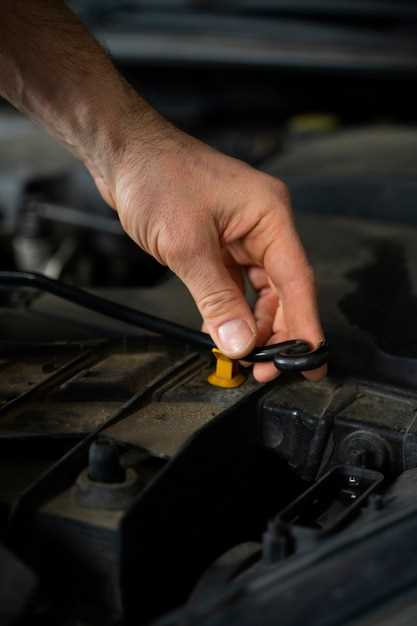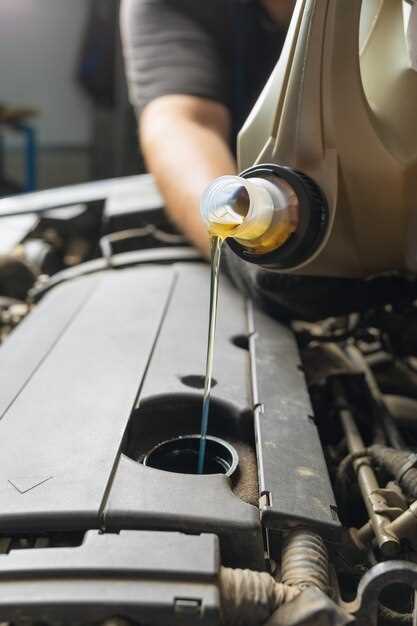Why regular oil changes are crucial


Taking care of your vehicle goes beyond just washing it and maintaining the exterior. One of the most crucial aspects of vehicle maintenance is ensuring timely oil changes. Engine oil acts as the lifeblood of your car, providing lubrication, reducing friction, and preventing overheating. Without regular oil changes, your engine’s efficiency can decline, leading to more significant issues down the line.
Changing your oil at the recommended intervals helps to remove dirt, debris, and contaminants that accumulate over time. Neglecting this simple yet vital task can result in increased wear on engine components and may even lead to costly repairs. By prioritizing regular oil changes, you not only enhance the performance of your car, but also extend its lifespan and improve fuel efficiency.
In summary, the importance of regular oil changes cannot be overstated. They are essential for maintaining the health and performance of your vehicle. As a responsible car owner, investing in routine oil changes is a small price to pay for ensuring that your car remains in optimal condition for years to come. Make oil changes a part of your vehicle’s care routine and watch as it thrives on the road.
Understanding the Role of Engine Oil in Vehicle Performance
Engine oil serves a critical role in ensuring the optimal performance of your car. Its primary function is to lubricate moving parts, reducing friction and wear between components. This lubrication is essential to maintain engine efficiency and longevity, as it helps prevent overheating and damage due to metal-to-metal contact.
In addition to lubrication, engine oil also aids in the cleaning process. It carries away contaminants, such as dirt and debris, that accumulate during the engine’s operation. This function ensures that the engine functions smoothly and efficiently. Regular oil changes are vital, as fresh oil contains additives that further enhance its cleaning properties, ensuring that dirt does not clog passages or damage critical components.
Another important aspect of engine oil is its ability to cool the engine. As oil circulates, it absorbs heat generated during combustion and friction. This cooling effect contributes significantly to maintaining a stable operating temperature, which is crucial for engine performance. Over time, oil can lose its ability to absorb heat effectively, emphasizing the need for regular changes.
Furthermore, quality oil contributes to improved fuel efficiency. Well-lubricated engines experience less drag, allowing for smoother operation and better fuel consumption. Consequently, maintaining the right oil level and quality is a key factor in maximizing your car’s performance and efficiency.
Finally, using the appropriate type of oil for your vehicle is essential. Different engines may require specific oil viscosity and formulations to perform optimally. Following the manufacturer’s recommendations regarding oil type and change intervals is fundamental for sustaining your car’s health and enhancing its operational performance.
Signs Indicating It’s Time for an Oil Change

Regular oil changes are crucial for maintaining your vehicle’s performance and longevity. There are several signs that indicate it’s time to change the oil in your car.
One of the most noticeable signs is the oil change light on your dashboard. When this warning light illuminates, it alerts you that the oil has degraded and needs replacement. Ignoring this signal can lead to engine damage.
Another indication is the oil color and consistency. Fresh oil typically appears amber and smooth. If you notice the oil has turned dark and thick, it’s a clear sign that it’s time for a change. Additionally, if you spot sludge or debris in the oil, immediate action is needed.
Engine noise is also a critical factor. If your engine starts to sound louder than usual or you hear knocking or ticking noises, it might suggest that the oil is no longer effectively lubricating the engine components. Changing the oil can help restore smooth operation.
Furthermore, an increase in exhaust emissions can signal that the oil is breaking down. If you observe excessive smoke or a strong smell from the exhaust, it may be time to change the oil to ensure proper engine function.
Lastly, consider the mileage since your last oil change. Most manufacturers recommend changing the oil every 3,000 to 7,500 miles, depending on the oil type used. If you’ve reached this range, it’s advisable to schedule an oil change even if no other signs are present. Regular care is essential to keep your vehicle in optimal condition.
Choosing the Right Oil and Change Frequency for Your Car

Selecting the appropriate oil for your vehicle is crucial for its performance and longevity. Different engines have varying requirements based on their design and operating conditions. Always refer to your owner’s manual to know the recommended oil type, which is typically categorized by viscosity ratings such as 5W-30 or 10W-40. The choice between conventional, synthetic, or synthetic blend oil also plays a key role. Synthetic oils generally offer better stability and performance in extreme temperatures, while conventional oils may suffice for older vehicles and less demanding driving conditions.
Establishing the optimal change frequency is equally important in the overall care of your car. Many manufacturers suggest an oil change every 5,000 to 7,500 miles, but this can vary based on factors such as driving habits, climate, and engine type. For instance, if you often drive in stop-and-go traffic or extreme temperatures, more frequent changes may be necessary. Additionally, modern oils and filtration systems may allow for extended intervals, so it’s wise to monitor oil levels and quality regularly, checking for signs of contamination or a change in color.
Incorporating both the right oil and adhering to a proper change schedule ensures that your engine remains well-lubricated, reducing wear and tear. This proactive approach not only enhances engine efficiency but also helps in maintaining optimal fuel economy and reducing emissions. Prioritizing these practices will ultimately contribute to a longer lifespan for your vehicle.



